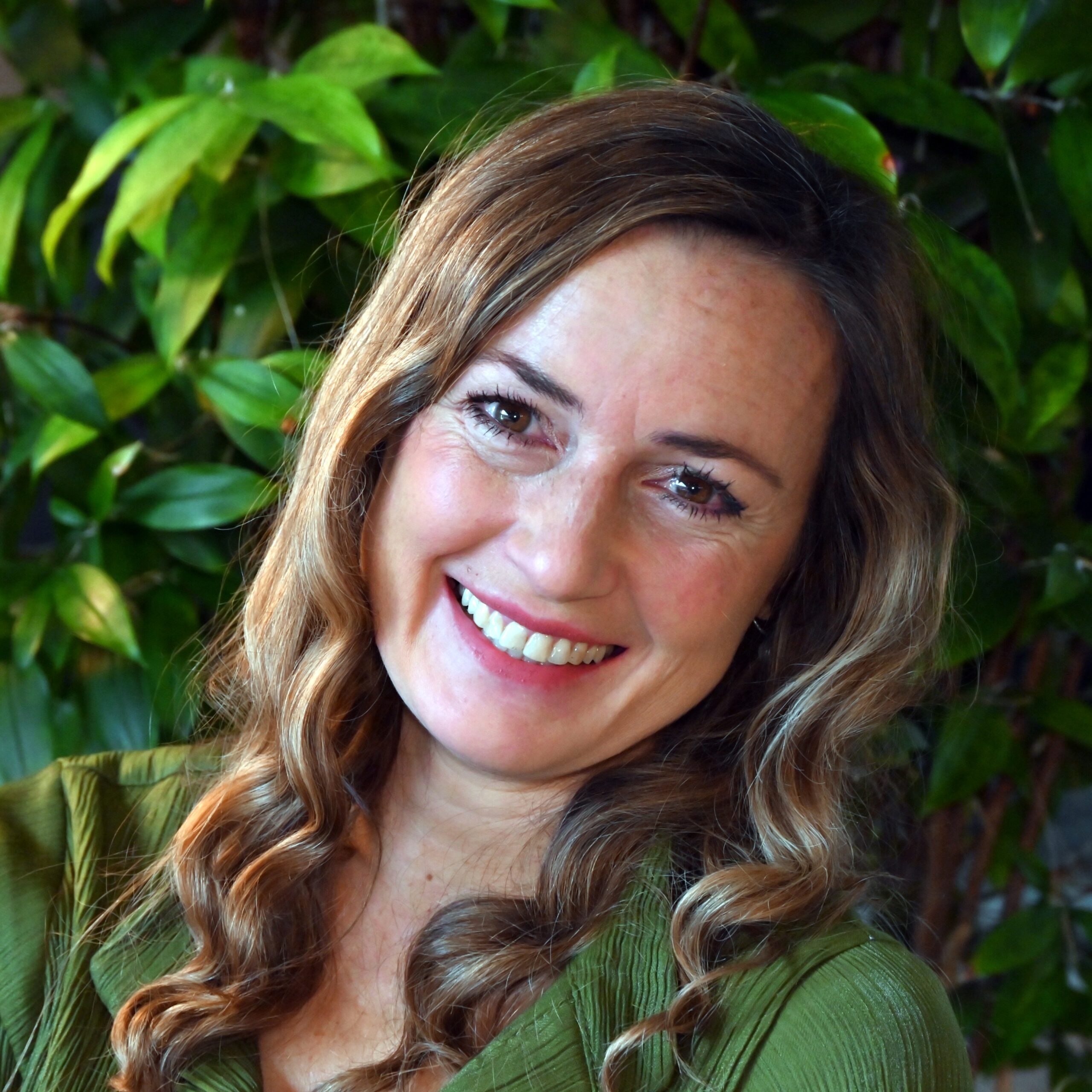Sigmund Freud University Vienna (SFU) – Ljubljana branch
The Ljubljana branch was established in 2014, at which time psychotherapy programmes were introduced. In 2018, the Ljubljana branch received accreditation for the Bachelor’s and Master’s programmes in Psychology. In 2020, the project “Psychological Counseling Office” was established, as the Ljubljana branch has strong expertise in clinical and counseling psychology. This is a complex project for the fields of applied and clinical psychology at the department of Psychology – SFU Ljubljana. We offer diagnostics, therapy, psychotherapy groups, psychological workshops, seminars, and training sessions. We have also developed a project called “Psychology for Everyone” and launched podcasts led by SFU Psychology students.
SFU Ljubljana is becoming more and more active in the context of research and is organised into two main research labs: the Clinical Psychology Lab (Univ.-Prof. Dr. Andreja Poljanec), which is strongly connected to SFU Vienna (Ass. Prof. Dr. Dominik Stefan Mihalits) and the Cognitive Science Lab (Ass.-Prof. Dr. Danaja Rutar).
Students are encouraged to take part in ongoing projects and collaborative initiatives with these institutions. This sets the foundation for international cooperation with other organisations.
Moreover, SFU Ljubljana has a growing research network and maintains strong international network collaborating with universities and research institutes including University of Louvain in Belgium, Cyprus University of Technology – School of health Sciences, Mekelle University College of health Science, University of Cambridge, University of Edinburgh, University of Amsterdam, Donders Institute for Brain, Cognition and Behaviour and Harvard University, the Vienna branch of SFU, among others. Students are encouraged to take part in ongoing projects and collaborative initiatives with these institutions. sets the foundations for a international cooperation with other
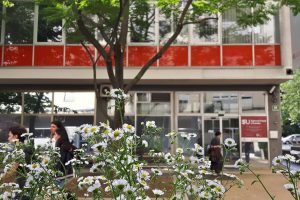
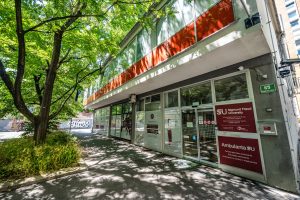
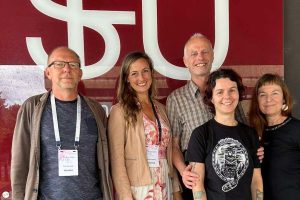
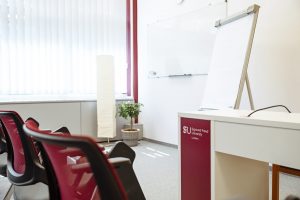
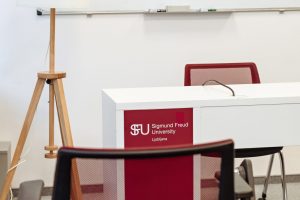
Research
a) Dr. Poljanec and her team are currently investigating parenting issues in modern society. She is the Slovenian coordinator of the International Investigation on Parental Burnout (Isabelle Roskam and Moïra Mikolajczak) where she and her team translated multiple questionnaires and conducted the quantitative part of the research. They are now examining the intergenerational transmission of emotions, stress, and affect regulation in relation to parental burnout. Parental burnout is a growing issue in Western societies, and further research is needed to understand the contributing factors and to develop appropriate support for affected parents and also grandparents.
b) Dr. Poljanec also leads the Slovenian part of the international study on postpartum depression, titled Mind the Mum: Placing Parental Mental Health and Care at the Forefront, conducted in Slovenia and Cyprus. Postpartum depression is an increasing challenge in modern societies, where systemic psychological and psychotherapeutic support for mothers is often lacking. The research focuses on: Understanding women’s experiences during the perinatal period and examining how various risk and protective factors affect their mental health, and Developing and adapting resources while promoting systemic changes to ensure that new mothers receive the skills and support they need to protect their mental health during this critical period.
c) She also leads Slovenian research on the mental health of Deaf and hard-of-hearing (DHH) people, in collaboration with the Association of the Deaf and Hard of Hearing Societies of Slovenia. This project explores the psychosocial experiences and mental health challenges of DHH individuals in Slovenia. It addresses the need for a more nuanced understanding of this diverse population, often incorrectly treated as homogeneous, despite major differences in identity, communication, and life trajectory among subgroups such as those deaf from birth, those who became deaf later in life, and hearing children of deaf parents (CODA). Key issues include communication barriers, identity development, emotional isolation, limited access to mental health services, and the lack of specialized professional training for working with DHH populations.
All the projects combine qualitative and quantitative research methods to capture the complexity of these issues.
Further information:
- Parental Burnout – https://en.burnoutparental.com/qui-sommes-nous
- Mind the Mum – https://umbilica.si/mind-the-mum-projekt/
We are continuously expanding the opportunities for collaboration and looking for additional sources of research funding. In the future we aim to apply for international research grants such as ERC Starting Grant as well as national grants.
The team is additionally involved in the international community by regularly attending national and international conferences such as the Cognitive Science Society Conference, The International Congress on Infant Studies (ICIS), European Congress of Psychology, (ECP); World Congress for Psychotherapy (WCP); International Conference on Parental Burnout etc.
International congress participation:
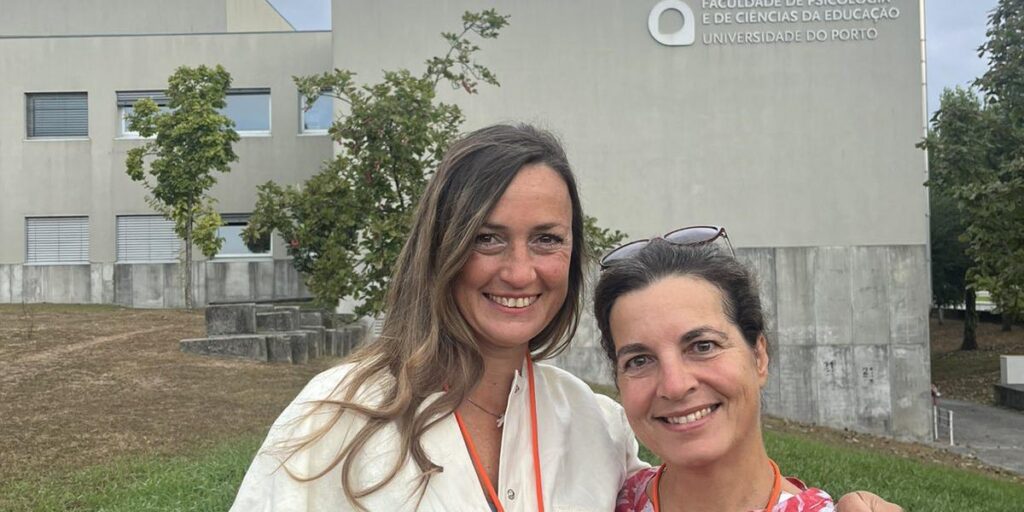
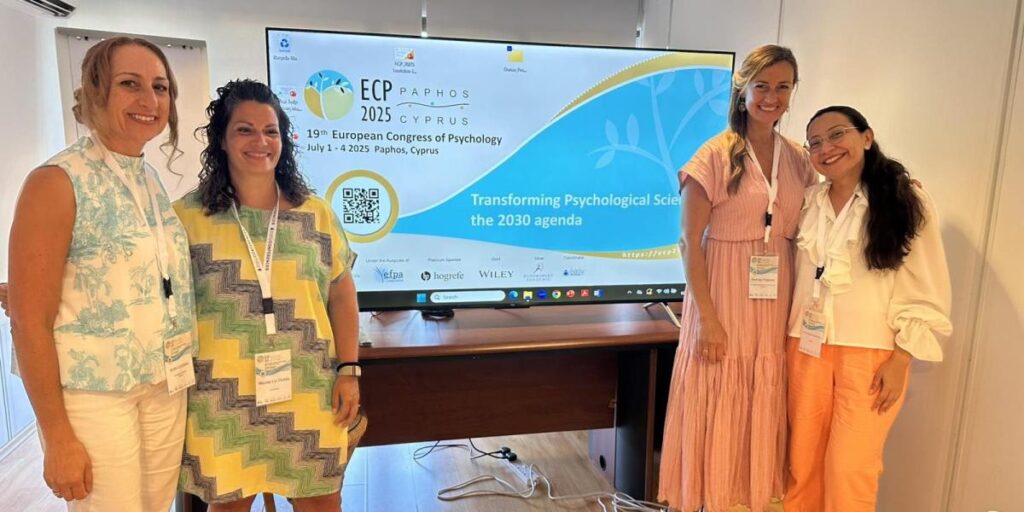
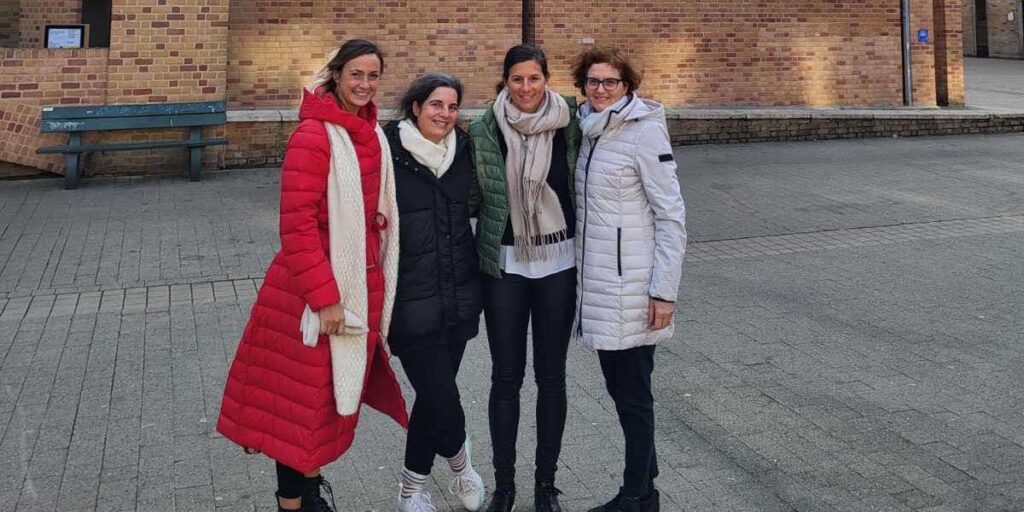
Also networking with Sigmund Freud University Vienna and Berlin as parts of the European Hub for Cultural Psychology to advance common research in future and exchange students and scientists:
- Dominik Mihalits (middle, left): Vice dean for international affairs of the Psychology Faculty in Vienna
- Meike Watzlawik (right): Head of the Psychology Department in Berlin
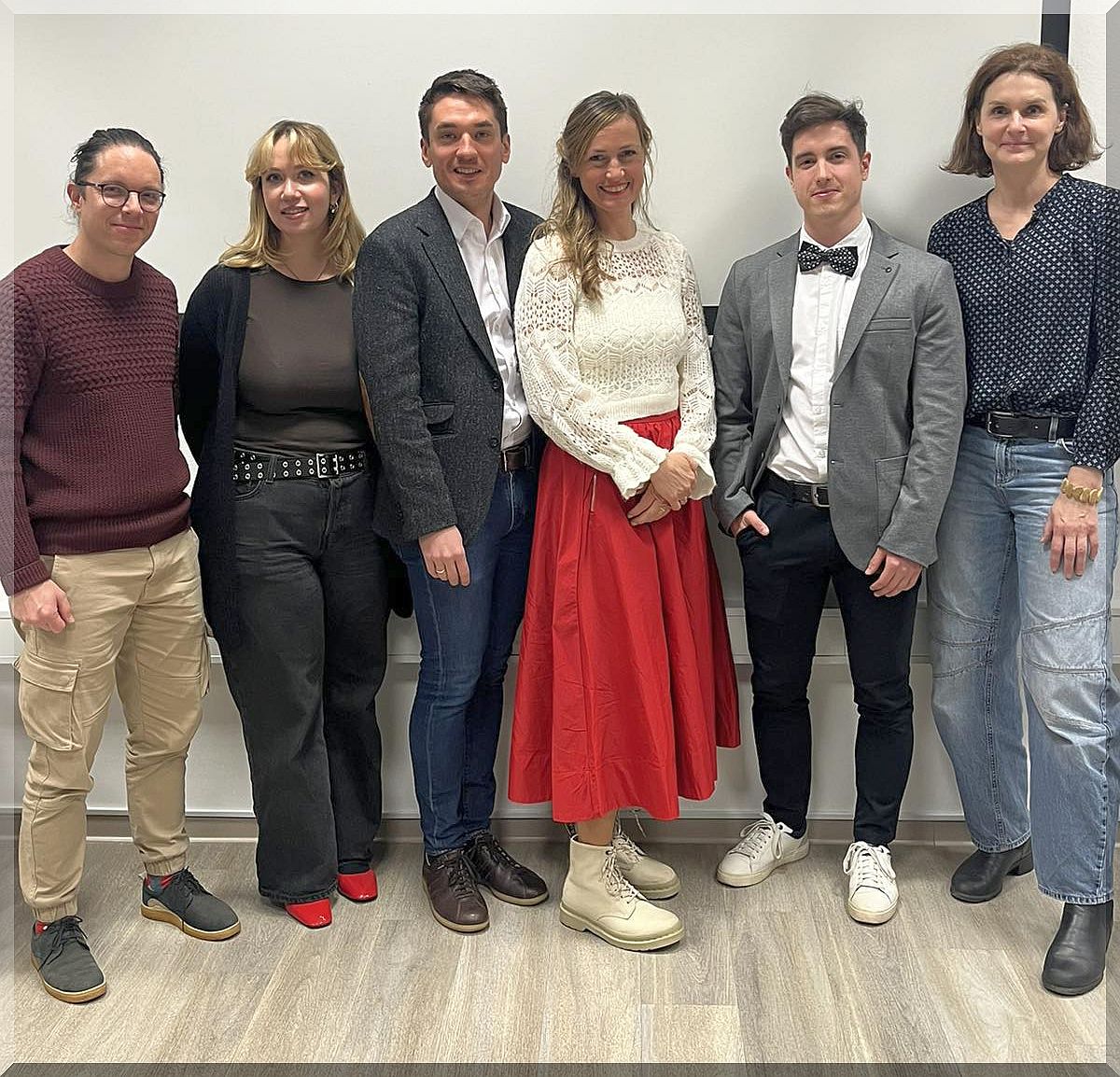
Scientific partners
Danaja Rutar completed her PhD at the Donders Institute for Brain, Cognition and Behaviour, where she investigated how humans develop, learn, and adapt mental models, using modelling, experimental, and conceptual approaches. During her postdoctoral fellowship at the University of Cambridge, she was part of a research team conducting comparative human–AI studies. She contributed to developing statistical frameworks for robust cross-species comparisons of behavioural results and to designing experimental batteries for training and testing both humans and AI systems.
Danaja Rutar is a cognitive scientist with additional interests in computational developmental psychology and AI. Her research focuses on the development and learning of concepts, as well as the nature of mental representations that support abstract thought, such as reasoning. She employs a broad range of methods, including behavioural experiments with children and adults, computational modelling, conceptual analysis, and comparative human–AI studies.
Her current research, supported by a grant, centres on the origins of compositional thought—that is, thought composed of primitive units that can be combined and recombined in infinitely many ways to generate novel ideas. The project aims to identify the most fundamental units that may constitute a “mental grammar” and to explain patterns in human thought based on their combinations. This work involves experimental paradigms applied to adults, children, and AI, and evaluates how well different candidate mental grammars account for human and AI concept learning.
Other parts of the project are theoretical in nature and will explore the precursors of compositional thought on an ontogenetic as well as phylogenetic level. Additionally, various computational frameworks to explain the emergence of compositional thought will be investigated.
Further information: The emergence and nature of compositional thoughts through predictive processing
Mail: danaja.rutar@sfu-ljubljana.si
Publications:
- Rutar, D., de Wolff, E., & Kwisthout, J. Statistical learning mechanisms are flexible and can adapt to structural input properties. In Proceedings of the Annual Meeting of the Cognitive Science Society (Vol. 47).
- Rutar, D., Colizoli, O., Selen, L., Spieß, L., Kwisthout, J., & Hunnius, S. (2023). Differentiating between Bayesian parameter learning and structure learning based on behavioural and pupil measures, PloS One, 18(2), e0270619.
- Rutar, D. (2023). Developing higher cognition through predictive processing. Sodobna pedagogika, 74(140), 148-166.
- Rutar, D., Wiese, W., & Kwisthout, J. (2022). From representations in predictive processing to degrees of representational features. Minds and Machines, 32(3), 461-484.
- Rutar, D., de Wolff, E., van Rooij, I., & Kwisthout, J. (2022). Structure Learning in Predictive Processing Needs Revision. Computational Brain & Behavior, 5(2), 234-243.
Representative
Field of work: University professor of Clinical Psychology and Head of the Department of Psychology at Sigmund Freud University – Ljubljana branch.
Resume: Andreja Poljanec earned her PhD in Marital and Family Therapy at the University of Ljubljana, specializing in secure and sensitive parenting as a fundamental mutual process for healthy child development and for the development of parents. Her research addresses interdisciplinary intersections between psychology and psychotherapy, with a focus on parenting, child and adolescent development, as well as clinical issues in parents and adolescents.
In 2012, she co-founded the Study and Research Institute for Families, where she led psychotherapy programs for families funded by the Slovenian government. In the field of parenting and child development, she authored two monographs: Sensitivity to Children (First Two Years of Life) and Sensitive Parenting. In her teaching, she specializes in developmental and educational psychology and child and adolescent psychopathology. She also lectures at the Faculty of Advanced Social Studies, where she has taught the courses Working with Families – Children with Special Needs and Group Psychotherapy. Since 2018, she has been Head of the Department of Psychology at Sigmund Freud University Vienna – Ljubljana branch.
Books/book chapters (selection):
Articles and paper presentations (selection):
- Poljanec, A., Buzeti, J., & Cankar, G.. (2024). Comparison of attachment styles among Slovenian and Australian teachers in primary schools = Primerjava stilov navezanosti med slovenskimi in avstralskimi učitelji v osnovnih šolah. Kairos : slovenska revija za psihoterapijo. [printed version.]. 18(3/4), 119-132.
- Poljanec, A., Greif, P. (2022). Pomen partnerskega odnosa ob vzpostavljanju in ohranjanju dojenja = The significance of the partner’s role in the initiation and maintenance of breastfeeding. Kairos : slovenska revija za psihoterapijo. [printed version]. 16,(1/2). 91-105.
- Poljanec, A., Buzeti, J.. (2022). Teachers’ attachment, sickness absence and presenteeism : association between teachers’ attachment and sickness absence and presenteeism in elementary schools. Ricerche di pedagogia e didattica. 17(3), 87-103. DOI: 10.6092/issn.1970-2221/14993. [COBISS.SI-ID 134911747]
- Poljanec, A., Korenčan, P., Bajt, K., Grebenc, S., Novak, B., Novak, M., & Plešej, M. (2017). Empirical analysis of research on children raised in same-sex unions = Empirična analiza raziskav otrok, vzgajanih v istospolnih zvezah. Kairos : slovenska revija za psihoterapijo. [printed version.]. 11, (3/4), 19-31.
- Poljanec, A., & Kompan Erzar, K. (2016). Love heals memory : (but reversed attachment generates distorted memories of parental love). International journal of humanities and social science. [Online ed.]. 6, (5), 38-44. http://www.ijhssnet.com/journal/index/3495.
- Simonič, B., Poljanec, A.. (2014). Building motherhood in the young mothers‘ group. Child care in practice. 20(3), 270-285. DOI: 10.1080/13575279.2013.875461.
- Poljanec, A., & Simonič, B.. (2011). L’empatia umana : riflesso dell’amore divino. Famiglia domani. 27( 4), 33-48.


